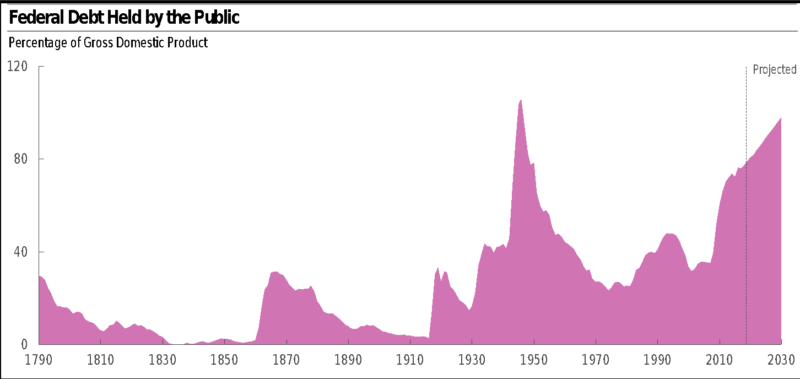Supporters of sound currency have a pretty good idea about what’s wrong with the present paper currency and banking arrangements. They also have clear views on what should replace it, although some put more emphasis on gold, others on baskets of commodities.
I remember the excitement I felt as I first read Friedrich Hayek’s The Denationalisation of Money. My preference was for gold, though the fluctuations of the early 1980s made me aware that reintroducing the Gold Standard could be turbulent. It would be politically “courageous” if not a sure election loser.
After grasping the idea that a basket of goods could be more stable than gold on its own, I eagerly turned to the last page. I hoped to find a compelling step-by-step guide to how to bring this “standard” currency into existence.
To put it mildly, I was disappointed.
What we now need is a Free Money Movement comparable to the Free Trade Movement of the 19th century, demonstrating not merely the harm caused by acute inflation, which could justifiably be argued to be avoidable even with present institutions, but the deeper effects of producing periods of stagnation that are indeed inherent in the present monetary arrangements.
At the time, I had some idea of how hard it can be to persuade 10 people to show up for an evening of canvassing to save grammar schools in Kingston-upon-Thames. Hayek’s briefing on how we were supposed to get thousands of people on some pro-gold Jarrow march struck me as useless.
It seems to me there are three ways progress on a sound currency could come about.
The first, which I hope can be avoided, is the catastrophic meltdown of the world’s paper currencies in one go (over the course of a few weeks). Gold will almost certainly emerge as a trusted alternative. We can sit by and watch.
The second would be a random currency emitter coming up with something really useful for maintaining value. I used to assume this would either be a government (imagine Russia or South Africa’s central banks trying out gold), or a multinational firm, WalMart dollars for instance. Bitcoin, or a similar private venture, could take off. We can help by informing people of these choices and try them out ourselves.
But the third would be a parallel currency backed by a central bank’s (remaining) gold reserves. Nathan kewis wrote about just such an idea in Forbes in 2012. The good news is that central banks seem to be run by people who don’t rate gold. This means that the excentric notion that one could separate the gold reserves from foreign cash reserves and issue a parallel currency pegged to those gold reserves might be considered “harmless”. If the “gold sovereign” started to gain acceptance as a means of settling contracts the Bank of England need simply let it continue.
So far as I can tell, there are two main objection central banks have to private enterprise currency issuers. First, some advertise themselves as tax-dodging schemes “pay your staff in XXX Gold Dollars and cheat the IRS.” Second, some are fraudulent.
Provided the gold reserves are properly audited, there shouldn’t be any great concern with a government-issued parallel currency. If a couple of central banks could be persuaded to experiment with a parallel digital currency or a gold-backed one, this would be helpful with public resistance to new currency arrangements. One could certainly envisage people putting some of their savings in the harder currency. A case of putting one’s eggs in two baskets.



Actually Antoine the whole work you mention is bad.
As the younger Hayek understood – index money is absurd, and “stable money” is the wrong objective anyway.
The same thing happened to Adam Smith – things he understood when he was younger (for example that there is no “paradox of value” – as people do not value “water” v “diamonds” – they value a particular bit of water against a particular diamond in the circumstances of time and place) confused him as he got older.
A “price index” is an artificial construct(nothing more) it is a bad idea (a very bad idea) to try and construct a currency on the basis of it – the younger Hayek understood all that.
As for what commodity people choose to use as money – that should be up to buyers and sellers.
If they choose gold – fine, if they choose silver – fine, if they choose Bit”Coin” – fine (but do not try offering it payment to me). All fine.
But drop the names “Dollar”, “Pound” and so on. The special names have opened the door to massive (system wide) fraud.
Just specify the weight and the purity of the commodity you want – in the contract.
“How is this to come about”.
Either by reform – unlikely.
Or via the collapse of the present system – far more likely.
Many people (including me) will die horribly – but at least this farcical credit bubble system (where loans are not from real savings and government just creates money to, indirectly, buy its own debt) will be at an end.
By the way – “stable prices” or “stable money” is the Irving Fisher fallacy. Exposed by, amongst others, Frank Fetter – almost a century ago.
There is, of course, no reason for large amounts of gold or silver to be physically carried.
Ownership of the agreed commodity can be transferred electronically – so debit cards (and so on) would be fine.
As long as people actually have the commodity they claim to have – i.e. no “legal” fraud.
Yes, a system of non-Central Bank money based on commodities would work very well. The oil producers might produce money based on oil and the wheat producers one based on wheat etc., all paper based and a clearing systems would consolidate.
But then of course we are led back to a gold standard, and rightly so, for that is where it all started.